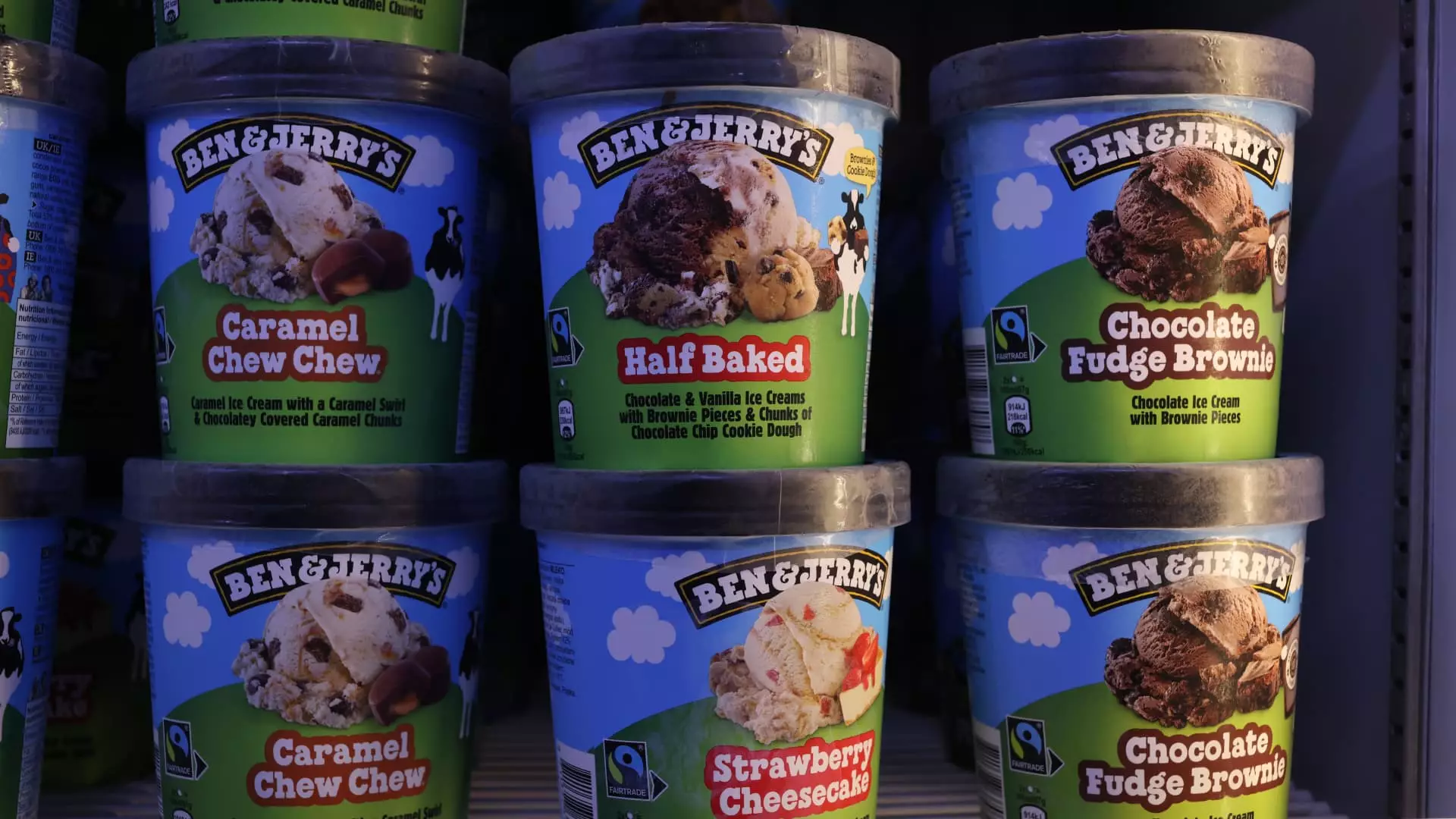Unilever shares experienced a surge on Thursday morning following the announcement that the consumer goods giant had elevated its full-year margin forecast and confirmed that the spinoff of its ice cream division was proceeding as planned, set to be completed by the end of 2025. The stock climbed by almost 8% initially, although these gains moderated to around 5.45% by 10:14 a.m. in London.
With a wide-ranging portfolio of renowned brands including Dove, Axe, Hellmann’s, Knorr, Domestos, Marmite, and Vaseline, Unilever reported growth across all segments in its first-half results published on the same day. The beauty and well-being division saw a substantial 7.1% expansion, whereas the ice cream sector lagged behind, only achieving a 0.6% increase in sales – inclusive of prices – with a 1% drop in volumes sold.
Describing the performance of the ice cream sector, which accounts for 15% of the group turnover, as “disappointing,” Unilever emphasized the need for improvement in this area. The decision to separate the unit, which includes familiar brands such as Ben & Jerry’s and Magnum, was made earlier this year in an effort to streamlining operations across beauty and well-being, personal care, home care, and nutrition.
Unilever’s CEO Hein Schumacher discussed the results, noting positive aspects such as volume growth, but pointed out subdued pricing due to prevailing trends in the commodity market. The company had previously implemented price hikes across various product categories in response to increased input costs related to agricultural products, energy, and logistics. Despite facing challenges, Unilever maintains its focus on maintaining competitiveness and delivering value to consumers.
In the second quarter of the year, Unilever registered underlying price growth of 1%, a noticeable decline from the 8.2% recorded during the same period in 2023. While organic sales growth slightly missed expectations, the company raised its margin guidance for the year to “at least 18%,” surpassing earlier predictions of a “modest expansion.” Analysts anticipated a positive impact on earnings per share due to this margin commitment, reflecting an overall positive outlook for the company’s financial performance.
Unilever’s strong gross margin progression in the first half of the year was attributed to volume leverage and increased productivity, although certain factors contributing to this growth may not be sustained in the second half. Emphasizing the importance of margin expansion to support brand growth and marketing investment, CEO Hein Schumacher highlighted the company’s commitment to continuous improvement and strategic focus on brand development.

